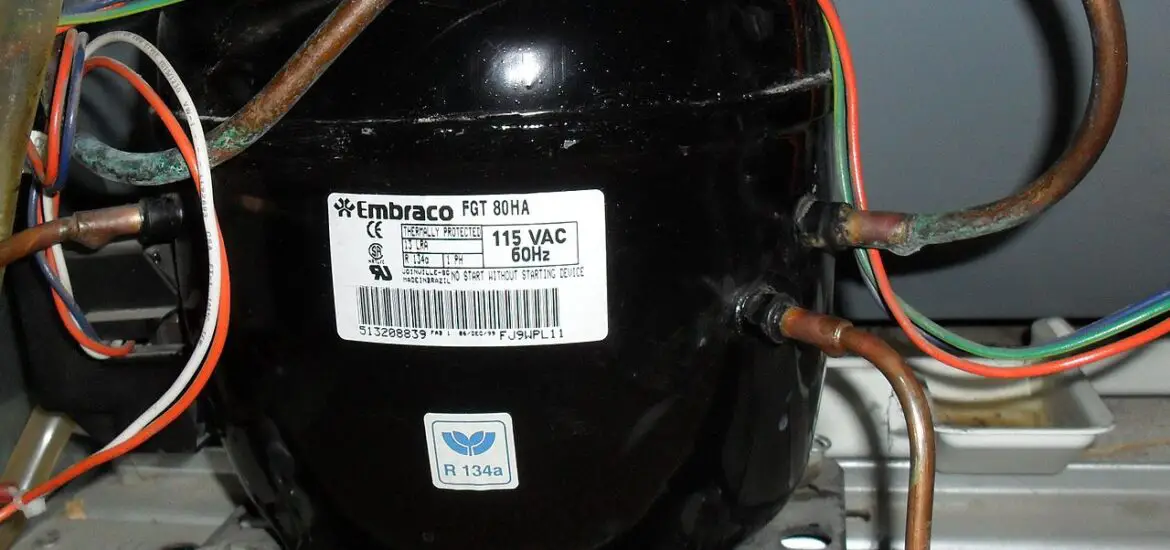Refrigeration compressor design isn’t something you think about every day. But this little marvel of engineering keeps our food fresh, our drinks cool, and our homes comfortable. It’s a behind-the-scenes player in our modern lives. But what is it really? And why does its design matter so much? That’s what we’re going to explore today.

Table of Contents
Overview
So, what exactly is refrigeration compressor design? In the simplest terms, it’s the process of planning and creating a compressor for a refrigeration system. This compressor acts like the heart of your refrigerator or air conditioning unit, pumping refrigerant gas through the system to remove heat.
Quick Definition
Refrigeration compressor design involves crafting a device that can take in low-pressure, low-temperature refrigerant gas, and compress it into a high-pressure, high-temperature gas. It’s the heart of the refrigeration cycle, and without it, well, we’d all be a lot warmer.
Importance of Refrigeration Compressor Design
The design of these unsung heroes plays a vital role in the efficiency, reliability, and longevity of your refrigerator or air conditioning unit. A well-designed compressor consumes less energy, operates quietly, and lasts longer. It’s not just about keeping things cool; it’s about doing it efficiently and sustainably.
Key Principles
The design of a refrigeration compressor is guided by a few key principles. One is the need to efficiently compress the refrigerant gas, which is achieved by optimizing the shape and motion of the compressor’s mechanical parts. Another is ensuring the compressor can withstand the high pressures and temperatures it operates under. And lastly, the compressor should operate quietly and smoothly to minimize noise and vibration.
Types of Refrigeration Compressors
Did you know there are different types of refrigeration compressors? Each one comes with its own unique design considerations and is suited for different applications. Let’s take a closer look.
Reciprocating Compressors
These are the workhorses of the refrigeration world. Reciprocating compressors use a piston and cylinder arrangement – think of your car engine – to compress the refrigerant gas. They’re versatile, capable of handling a wide range of conditions, and are known for their reliability. But they’re not perfect, their design is complex and they tend to be noisier than other types.
Rotary Compressors
Imagine a wheel spinning inside a cylinder, pushing the refrigerant gas ahead of it. That’s the basic idea behind a rotary compressor. These guys are compact, operate smoothly, and are quieter than reciprocating compressors. But they typically have a lower capacity, making them best suited for small-scale applications, like residential air conditioners.
Scroll Compressors
In a scroll compressor, two spiral-shaped scrolls compress the refrigerant gas as they move against each other. The beauty of this design lies in its simplicity – fewer moving parts means less noise, less wear, and higher reliability. But their efficiency can decrease over time, especially if the scrolls wear out.
Screw Compressors
Screw compressors are like a pair of interlocking screws, trapping the refrigerant gas and compressing it as it moves along the screw threads. They’re powerful and efficient, but their complex design means they’re often used in large-scale, industrial applications where their high capacity can be fully utilized.
Check out these other related articles…
Oil for Refrigerator Compressor: A Comprehensive Guide
Refrigerator Compressor Gas Name: Your Complete Guide
Fridge Compressor Gas Filling: Your Essential Guide
Refrigerator Compressor Efficiency: A Detailed Guide
Refrigerator Compressor Knocking: Reasons & Solutions
Refrigeration Compressor Design Factors
When it comes to designing a refrigeration compressor, several factors come into play. Let’s delve into these considerations.
Application Requirements
The specific requirements of the refrigeration application have a huge impact on compressor design. A small home refrigerator has very different needs from a large commercial freezer, for example. These requirements can include cooling capacity, system size, and efficiency requirements.
Efficiency and Energy Consumption
The design of a compressor directly impacts its energy consumption. More efficient designs require less power to compress the refrigerant gas, which can lead to significant energy savings over the life of the unit. Optimizing for efficiency often involves tweaking the compressor’s shape and size, the materials used, and the mechanics of how it compresses the gas.
Noise and Vibration
No one wants a noisy refrigerator. The design of the compressor can have a significant impact on the amount of noise and vibration it produces. Design strategies to minimize noise and vibration can include the use of dampers, insulators, and specially designed mechanical parts.
Cost and Manufacturing Considerations
Cost is always a factor in design. This includes not just the cost of materials, but also the costs of manufacturing and maintenance. Designers must strike a balance between creating an efficient, high-performing compressor and keeping costs manageable.
Innovations in Refrigeration Compressor Design
The world of refrigeration compressor design is not standing still. New technologies and design strategies are continually being developed to improve performance and efficiency. Let’s take a look at some of the latest innovations.
Digital and Variable Speed Compressors
Digital and variable-speed compressors represent a significant advancement in compressor technology. By varying the speed of the compressor, these designs can closely match the cooling demand, leading to improved efficiency and performance. They’re like the smart, energy-conscious cousins of traditional compressors.
Environmentally Friendly Designs
As our awareness of environmental issues grows, so too does the emphasis on designing more environmentally friendly compressors. This can include strategies to reduce refrigerant leakage, which contributes to global warming, and improving energy efficiency.
Smart Compressors
Smart compressors take advantage of advanced sensors and control systems to optimize performance. They can monitor their own condition, predict maintenance needs, and automatically adjust their operation to match cooling demand. They’re not just compressors; they’re mini-computers in their own right.